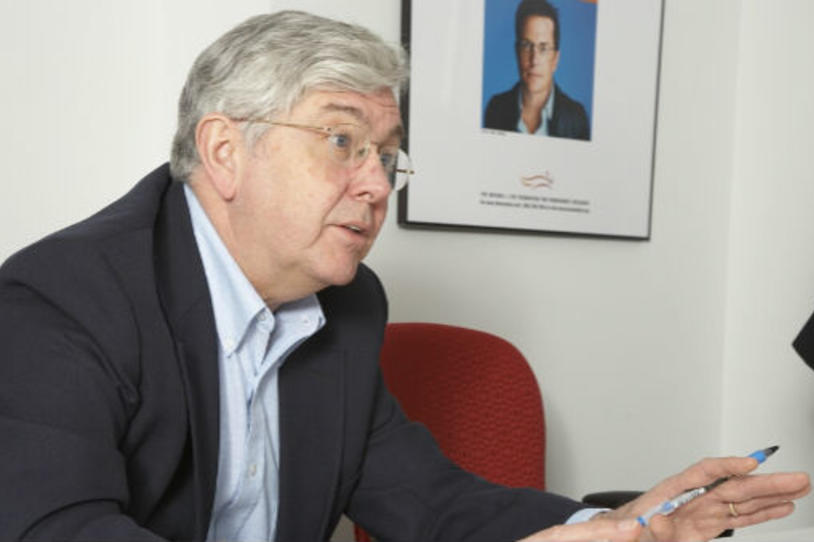
On a recent visit to our office Chief Scientific Officer Gene Johnson, PhD, sat with us for some perspective on the evolving role of the Foundation and the future of the field.
Serving in his MJFF role since February 2006, Dr. Johnson works with the research staff in identifying priority research areas and driving initiatives and grants in those areas. He is Professor of Neurology and of Developmental Biology at the Washington University School of Medicine in St. Louis, Missouri, and is internationally renowned for his research on the death of nervous system cells during normal development and in response to disease.
MJFF: How has your role at the Foundation changed over the last eight years?
GJ: In 2005, we had all these young, smart, talented, hardworking scientific staff, and I think they felt they wanted a greybeard to help them. I’ve outgrown that initial role because what’s happened is the scientific staff has gained a lot of experience, a lot of confidence, and a lot of credibility among the scientific community. So in a way, some of the roles I could serve as a greybeard, they no longer need because of their development. Their beards are getting a little grey, too.
MJFF: How has the Foundation’s role in the field changed?
GJ: The Foundation’s role in the field has grown enormously. When I first started, it was like almost every other foundation — it was mostly funding grants. With the increase in staff and experience, The Michael J. Fox Foundation has been able to identify what are the things that are really holding the field back. These things are beyond the capacity of any individual lab to solve, and they need to be solved by a bigger umbrella organization with the commitment and the resources.
I guess the biggest, most robust examples are the Parkinson’s Progression Markers Initiative and Fox Trial Finder. The science is not going to move forward unless we can get the right people to participate in clinical trials. And we’re not going to able to move forward unless we can establish a biomarker, and provide the tissue samples to find and validate the biomarker. We continue to do investigator-initiated grants and we probably always will, but we’re tackling bigger obstacles to progress and in partnership with other foundations, with government, with industry. We’ll partner with anybody to get the job done.
MJFF: What do you think is going to bring us closer to a cure?
GJ: I think that it could very well be that we already have therapies that would be effective if we had better clinical trial design and participation to enable them to be adequately tested in a timely way. We have a lot of things going, and we’re learning all the time, and we will incrementally solve this. We’ll learn more; we’ll get better; we’ll identify what all the impediments are, and we will find ways to knock down each of those barriers until we get where we need to be.
What we’re going to do is learn how to control the disease and make it much, much less burdensome. People may still have the disease, but they never manifest symptoms or the full constellation of symptoms. I’m hypertensive. Hopefully where we get to is saying “I’ve got Parkinson’s disease” is like saying “I’ve got hypertension.” I can control it. It’s not going to affect my life. It’s not going to affect my life expectancy. It’s not going to place an enormous economic burden on my family. That’s how most of medicine is.
Read more from Dr. Johnson on his area of research: neurotrophic factors.
